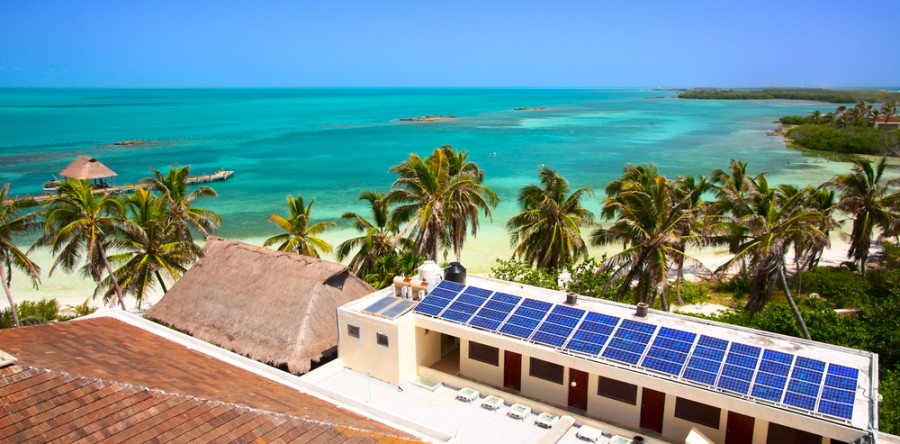Developing RES potential in the OCT
The main challenge that the Overseas Countries & Territories (OCT) face consist in putting their economies and societies on a sustainable development path. The development of the energy sector on the islands and in particular renewable energy is one of the fundamental elements for the sustainable development of the OCTs[1].
EIR Global prepared for the European Commission the “Study on Renewable Energies and Green Policy in the OCT” that sets out the roadmap for renewable energy development in these island countries with their unique geographical positioning. The development of the energy sector in the island countries in general is facing structural constraints such as lack of fossil energy resources leading to a high dependency on imported hydrocarbon fuels, low level of energy demand and scattered population, making rural electrification programmes expensive and sometime not practical.
Each OCT has its own challenges and constraints for RES conventional and innovative technologies penetration. This comprehensive study provides an update on the current situation of the OCTs’ existing energy profiles, reviews and analyses progress made by the OCTs over the last few years, assesses the evolution of the energy mix and potential for additional diversification, analyses development of further adoption of sustainable energy technologies, and maps out the experience gained to date in island states with regard to sustainable energy technologies
[1] The OCTs are 25 countries and territories, which have special links with Denmark, France, the Netherlands and the United Kingdom and which are associated with the Union according to the provisions of the Treaty on the Functioning of the European Union. Geographically, these islands are located in Atlantic, Antarctic, Arctic, Caribbean, Indian Ocean and Pacific regions. http://ec.europa.eu/europeaid/where/octs_and_greenland/index_en.htm



